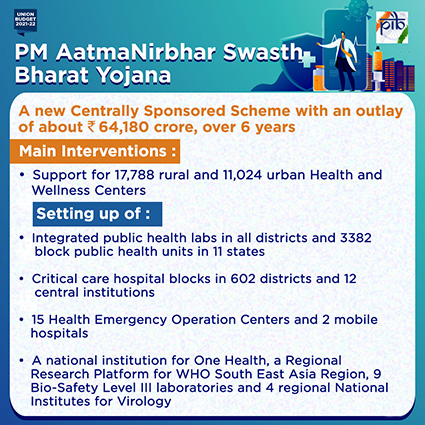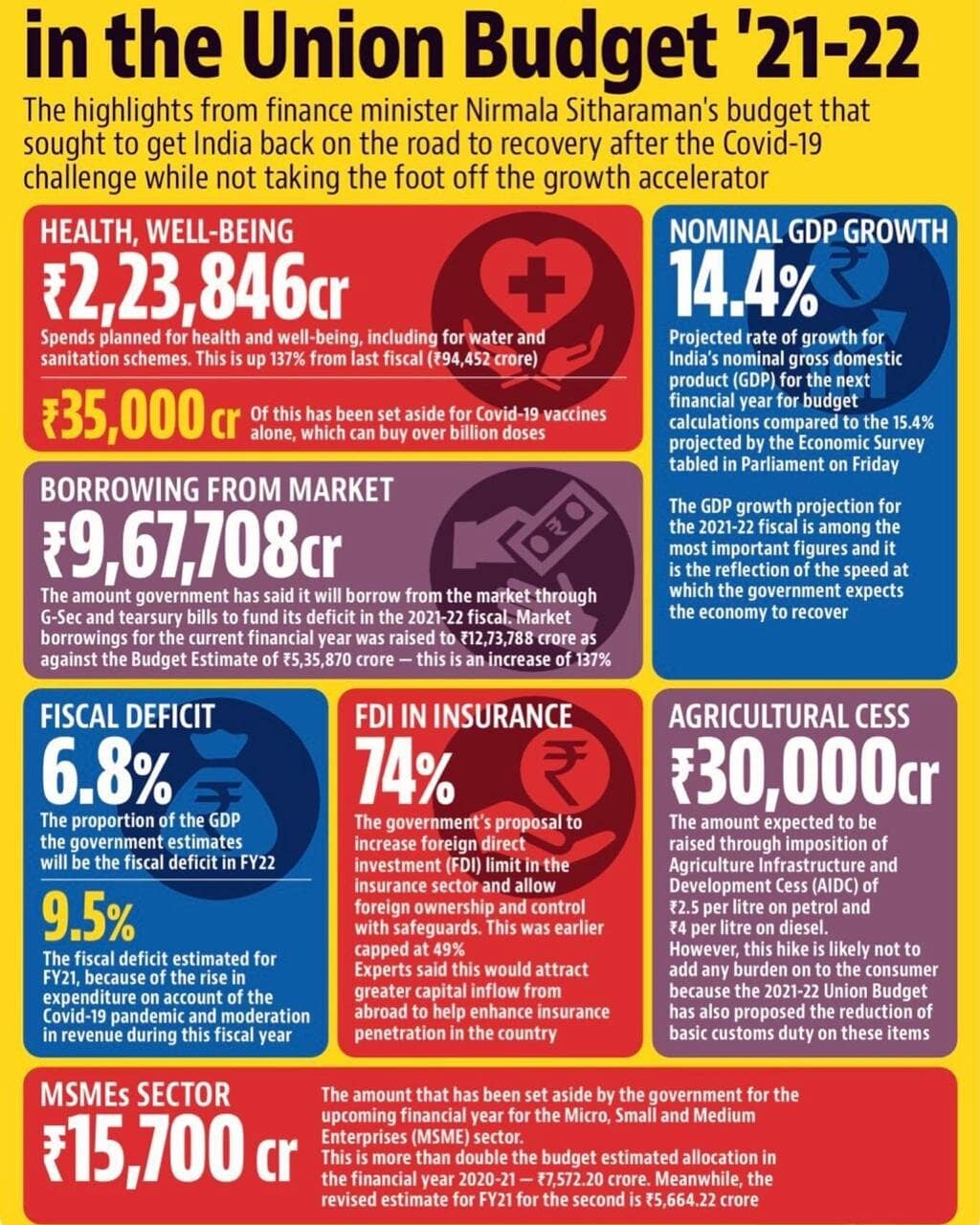Budget 2021 Highlights: Health and Wellbeing | 03 Feb 2021
Why in News
Recently, the Minister of Finance presented the Union Budget 2021-22. This was the first ever digital Union Budget.
- It is based on six pillars - health and well-being, physical and financial capital and infrastructure, inclusive development for aspirational India, reinvigorating human capital, innovation and R&D, and 'Minimum Government, Maximum Governance'.
- This section deals with the proposals for the Health and Wellbeing Sector.
Budget and Constitutional Provisions
- According to Article 112 of the Indian Constitution, the Union Budget of a year is referred to as the Annual Financial Statement (AFS).
- It is a statement of the estimated receipts and expenditure of the Government in a Financial Year (which begins on 1st April of the current year and ends on 31st March of the following year).
- Overall, the Budget contains:
- Estimates of revenue and capital receipts,
- Ways and means to raise the revenue,
- Estimates of expenditure,
- Details of the actual receipts and expenditure of the closing financial year and the reasons for any deficit or surplus in that year, and
- The economic and financial policy of the coming year, i.e., taxation proposals, prospects of revenue, spending programme and introduction of new schemes/projects.
- In Parliament, the Budget goes through six stages:
- Presentation of Budget.
- General discussion.
- Scrutiny by Departmental Committees.
- Voting on Demands for Grants.
- Passing an Appropriation Bill.
- Passing of Finance Bill.
- The Budget Division of the Department of Economic Affairs in the Ministry of Finance is the nodal body responsible for preparing the Budget.
- The first Budget of Independent India was presented in 1947.
Key Points
- Budget Outlay: Outlay for Health and Wellbeing in 2021-22 as against 2020-21 is an increase of 137%.
- Major Steps: Steps being taken for improving health and wellbeing:
- Vaccines:

- Rs. 35,000 crore for Covid-19 vaccine in Budget Expenditure (BE) 2021-22.
- The Made-in-India Pneumococcal Vaccine to be rolled out across the country.
- Health Systems:
- PM AatmaNirbhar Swasth Bharat Yojana – a new centrally sponsored scheme to be launched, in addition to National Health Mission (NHM).
- Nutrition:
- Mission Poshan 2.0 to be launched to improve nutritional outcomes across 112 aspirational districts.
- Universal Coverage of Water Supply:
- Jal Jeevan Mission (Urban) - to be launched - to bring safe water to 2.86 crore households through tap connection.
- Swachch Bharat, Swasth Bharat:
- Strengthening of Urban Swachh Bharat Mission 2.0.
- Clean Air:
- Rs. 2,217 crore to tackle air pollution, for 42 urban centers with a million plus population.
- Scrapping Policy:
- Voluntary vehicle scrapping policy to phase out old and unfit vehicles.
- Vaccines:

